Towards a freshwater ethic: lessons from Aldo Leopold for contemporary aquatic conservation

“All ethics so far evolved rest upon a single premise: that the individual is a member of a community of interdependent parts. The land ethic simply enlarges the boundaries of the community to include soils, waters, plants and animals, or collectively the land.” This is the core of early-20th Century American conservationist Aldo Leopold’s outlook on environmental management, or as it his commonly known, his ‘land ethic’.
Writing in his seminal A Sand County Almanac, published in 1949, Leopold outlines a gently-radical ecosystem-orientated approach to natural resource management, in which humans are encouraged to foster a responsible and sustainable relationship with the biotic communities with whom they share a landscape. The book, which in a series of essays documents the ecosystems on Leopold’s farm in Wisconsin, and more widely in the USA, Canada and Mexico, is a landmark text in the development of the American (and arguably, global) conservation movement. In no small part due to its lyrical tone, A Sand County Almanac is also widely cited as popularising public debates in both ecology and environmental ethics.
The ‘land’ in Leopold’s land ethic leads a casual reader to assume that he was solely interested in terrestrial ecosystems. However, as the quote above shows, Leopold’s land ethic explicitly includes a responsibility towards the conservation of aquatic ecosystems. Indeed, Leopold was a keen angler, and wrote about the sustainable management of rivers and streams, particularly in terms of the impact of soil erosion and run-off as a result of poor land management.
More than half a century later, then, could Leopold’s work be used to develop a ‘freshwater ethic’ which could strengthen contemporary aquatic conservation? According to a team of freshwater researchers writing in the Aquatic Conservation journal, there is rich potential to rediscover Leopold’s work in this way.
The team, led by Prof. Steven J Cooke from Carleton University, Canada, reflect on Leopold’s scholarship to identify a set of ‘Aldo-inspired’ recommendations for protecting and restoring freshwater ecosystems in an Anthropocene era. These include: adopting an ecosystem approach; managing freshwaters as coupled social-ecological systems; acknowledging the limits to human dominance over freshwater systems; and addressing the underlying causes of environmental issues rather than their symptoms.
“2020 was the 70th anniversary of Aldo Leopold’s land ethic,” says Prof. Cooke. “That seemed like an opportune time to take a pause and reflect on what the land ethic has meant in terms of aquatic conservation and consider how it could be used to explicitly define a freshwater ethic.”
“There are few ecologists and nature conservationists whose thinking has not been touched, or even inspired, by Aldo Leopold: the ethical notions that love and respect for the natural environment stem from a perspective in which ‘land is a community to which we belong’; that our action is ‘right when it tends to preserve the integrity, stability and beauty of the biotic community,’” says co-author Prof. Steve Ormerod from Cardiff University. “Although stated often as a ‘land ethic’, Leopold’s boundaries embraced soil and water as much as they embraced plants and animals: an environmental whole of which we are citizens.”
“One of Leopold’s first peer reviewed papers was in Transactions of the American Fisheries Society and he was responsible for the management of aquatic resources at various times in his career. It is easy to think of Leopold as being concerned about land and terrestrial wildlife but his definition of both was inclusive in many ways and he certainly understood the interconnections between land and water,” Prof. Cooke says.

The journal authors argue that Leopold’s outlook has significant value for contemporary freshwater management. This is reflected in their ‘Aldo-inspired’ recommendations, which also include: acting now to address the biodiversity crisis, even when faced with uncertainty; identifying ‘win-win-win’ scenarios in which the value of clean water is shown to have wide societal benefits; and the vital nature of ‘wild’ or barely-modified rivers.
Moreover, the authors look to Leopold to remind us that freshwaters are a core element of diverse human-nature relationships, and a sense of ‘freshwater optimism’ is necessary to make positive conservation progress. On this point, the authors quote Leopold on his conservation philosophy, writing in 1938 that, “We shall never achieve harmony with the land, anymore than we shall achieve absolute justice or liberty for people. In these higher aspirations the important thing is not to achieve but to strive.”
“The plight of freshwater ecosystems – now some of the most threatened on earth – motivated us to re-emphasise Leopold’s holistic view in our paper,” states Prof. Ormerod. “Human actions around freshwaters so often reflect a careless assumption that rivers and lakes exist for drinking water, for waste disposal or for hydropower. Or that wetlands can be drained for development without thought for the consequences. Freshwater ecosystems are critical to our survival – and Leopold reminds us not only of our ethical responsibility towards them, but that our own fate will be tied to theirs.”
“Today A Sand County Almanac remains on the reading list in many natural resource management programs,” says Prof. Cooke. “It is our hope that our essay will help to inspire the next generation of aquatic biologists and managers to consider Leopold’s wisdom and apply his principles to contemporary conservation problems.”
+++


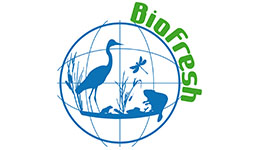



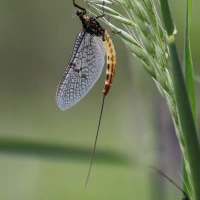
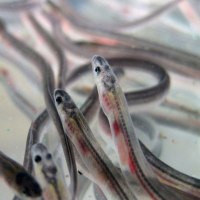

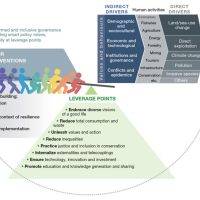
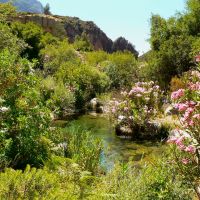
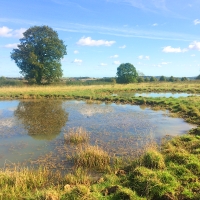

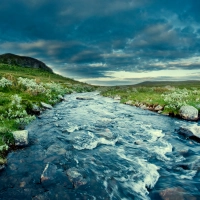

Comments are closed.